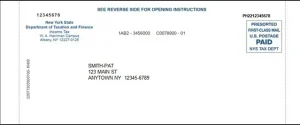China launches massive crackdown on BL novel writers, jailing them and fining them millions of dollars

The Chinese government has launched the largest crackdown on gay novels in history, arresting gay novelists who produce obscene media, with up to 10 years in prison and millions of dollars in fines. Some who have expanded the content of their novels by hundreds of thousands of pages have also been arrested.
The Chinese government has launched the largest crackdown on gay novels in history, arresting gay novelists who produce obscene media, with up to 10 years in prison and millions of dollars in fines. Some who have expanded the content of their novels by hundreds of thousands of pages have also been arrested.
The Chinese version of the New York Times reported that the Chinese government has cracked down on gay novels and arrested dozens of students who wrote gay novels, fearing the rise of homosexuality. The article said that a master’s student in southern China used his extracurricular time to create a 75-chapter romance novel and posted it on the website. The novel tells a love story between two young men, which is full of passionate scenes known as “NC scenes.” Readers must pay to read each chapter, which resulted in her income of less than 3,000 yuan or 13,000 baht.
Now, this novel may have put her in criminal detention. Authorities in several provinces in China are investigating and prosecuting dozens of BL/yaoi (BL) online platform authors, most of whom are young women in their 20s, in one of the largest crackdowns ever.
At least 12 writers in Anhui province had been prosecuted for distributing obscene materials by the end of last year, according to court rulings; this spring, several college students in Lanzhou, Gansu province, were fined heavily or sentenced to several years in prison for producing and distributing obscene materials.
The government’s main target is “danmei,” or gay romance novels, which are usually written by heterosexual women and spread on China’s Internet. Originated in Japan, the novels have been popular across Asia since the 1990s because they tell a romantic love story that is different from the common “strong man and weak woman” model on the market.
In the mid-2010s, Chinese entertainment media adapted the novels into hit TV series, creating several male actors who became superstars, but the trend has begun to reverse in recent years.
As its popularity soared, state media slammed its literary works as “degenerate,” claiming that the same-sex love scenes in them “distorted” the minds of young people. Authorities have suspended the broadcast of some series, and the National Television Commission has banned all BL content. In 2018, a famous writer was sentenced to 10 years in prison for spreading obscene content, sparking outrage on the Chinese Internet.
BL novels, or novels about men loving men, are taboo in China.
The content was adjusted and the platform was moved, but ultimately it didn’t work out.
To avoid the risk, some writers deleted scenes for those over 18, or changed the relationship between the male protagonists to a brother-sister relationship instead of a couple. Such works can still be published in China, but those who want to write pornographic content have begun to turn to foreign websites. The most popular site is Taiwan’s “Haitang Literature City”, which Chinese readers need to use a “VPN” to cross the firewall to access.
Recently, even hiding in Haitang is not safe, and writers arrested in Jixi, Anhui Province, and Lanzhou, Gansu Province, have published works on this website.
The crackdown has triggered fierce criticism of artistic freedom, morality and the country. Some people pointed out that some suspects who kidnapped amulets or raped children received lighter sentences than “banned book writers.” “Law enforcement seems more concerned with ‘social morality’ than protecting individual rights,” a law professor at Tsinghua University in Beijing said in a post that has since been deleted.
Many observers believe the arrests reflect the shrinking space for Chinese women and LGBTQ people to express themselves.
The exact number of arrests is unclear, as many writers are afraid to speak out and online discussions are censored. One Chinese news outlet reported that Gansu police may have detained as many as 50 writers. Two lawyers interviewed by The New York Times said they each represented one suspect but were told there were at least six other cases.
Many pointed out that the police may be motivated by “making money” because local governments are heavily in debt and some regions have been accused of extorting money from companies in other provinces. Gansu and Anhui have both arrested writers from other provinces.
China launches largest crackdown on “black humor” writers in history, jailing them and fining them millions of dollars
Obscenity law: a murky line of interpretation
China’s criminal code prohibits media from depicting sex unless it has scientific or artistic value. Publishers who “seek profit” and are “serious” could face life imprisonment. “Serious” is measured by revenue or clicks.
The Chinese government has also cracked down on pornography, but LGBTQ content has been particularly targeted. An official guidance document for internet operators lists homosexuality and other deviant behavior as pornography.
Chinese scholar Cathy Hu said the crackdown on “BL” is “control over heterosexual women” and reinforces the glorification of patriarchal families in an era of falling birth rates.
Case: Double fine for a million-baht income, even a student with a hundred-baht income can’t escape
The writer, who goes by the pen name “Yun Jian”, has published 38 BL novels on the Haitang platform since 2018, earning a total of 1.85 million yuan (8.3 million baht). The court sentenced her to four years and six months in prison and a fine of twice her income, totaling more than 16 million baht, according to a verdict her husband claimed to have circulated online.
Lawyer Ye Bin, who represents four female writers in their twenties, said her clients, who earn between 190,000 and 390,000 yuan ($26,700 and $50,000), were given suspended sentences and fines twice their income.
Ye declined to reveal details of the content, acknowledging that artistic freedom should be discussed along with youth protection, but noted that China has been using pornographic standards since 2010, which is out of sync with social changes.
Gay novelist arrested for producing obscene media, sentenced to 10 years in prison
In the spring of 2025, Lanzhou police arrested several more writers. Some of those arrested were students. One earned less than 200 yuan (1,000 baht) from his novels.
“My client was caught off guard,” lawyer Wu Jian said of the graduate student who received only 3,000 yuan. “During the investigation, the police asked her if she knew it was illegal to write like this. She said she didn’t know until she was summoned.”
Although the crackdown targeted explicit gay novels, Liang Ge, a scholar at University College London, warned that it was a sign of shrinking freedom of expression in China. “It’s not just pornography or homosexuality,” she said. “Many Chinese social media users feel their breathing space is shrinking every day.”
![]()







